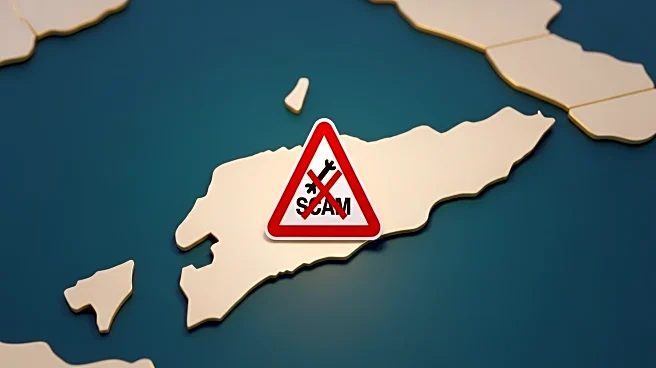What's Happening?
The United Nations Office of Drugs and Crime (UNODC) has reported the discovery of a suspected scam call operation linked to a new free trade zone in East Timor. These scam centers, which have proliferated across Southeast Asia, are known for conducting computer-enabled scams costing victims billions annually. The report notes that scam centers have relocated as governments in the region intensify crackdowns. In East Timor, police recently raided a suspected scam center, detaining over 30 foreigners. The UNODC warns that the spread of scam centers is concerning, especially as East Timor prepares to join ASEAN.
Why It's Important?
The spread of scam centers in East Timor highlights the challenges faced by developing nations in combating cybercrime. As East Timor joins ASEAN, increased connectivity may expose the nation to more sophisticated scams, impacting its economy and international reputation. The report underscores the need for regional cooperation and robust cybersecurity measures to protect vulnerable populations. The involvement of international criminal networks, such as the 14K Triad, further complicates efforts to dismantle these operations, requiring coordinated action from multiple countries.
What's Next?
East Timor's upcoming membership in ASEAN may prompt regional efforts to address the issue of scam centers. Governments in Southeast Asia may increase collaboration to enhance cybersecurity and law enforcement capabilities. The UNODC's findings could lead to policy changes and initiatives aimed at preventing the establishment of scam centers in free trade zones. Stakeholders, including international organizations and local authorities, will likely focus on developing strategies to mitigate the impact of cyber-enabled scams.
Beyond the Headlines
The proliferation of scam centers raises questions about the ethical implications of exploiting free trade zones for criminal activities. It highlights the need for transparency and accountability in economic development projects. The situation in East Timor may serve as a case study for other developing nations facing similar challenges, emphasizing the importance of balancing economic growth with security measures.












